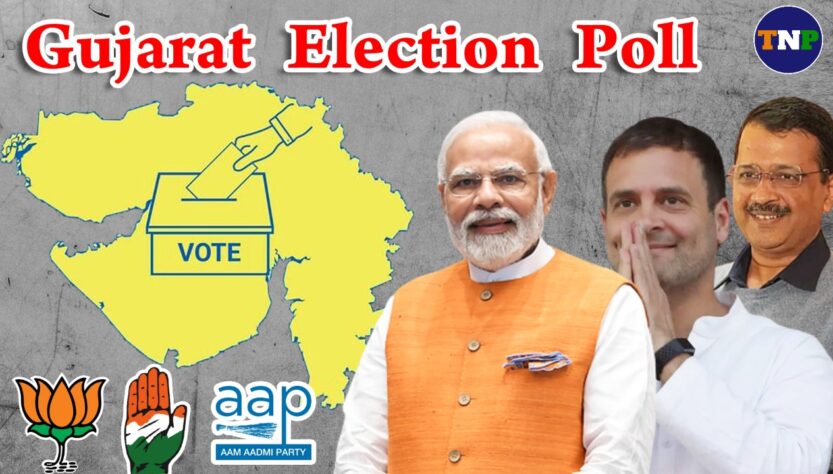The nation and the world looks upon 2024 with much greater attention than they have done during any previous election-year. As we move closer to that year, a Modi-Ho-Modi-Go dichotomy is going to become sharper. Indians across the spectrum and foreigners who either for academic reasons or for reasons of their getting impacted by the outcome of the 2024 election are getting organised on one side or the other of the Modi-Ho-Modi-Go dichotomy. To that extent has Modi’s personality and style of working become synonymous with the destiny of our nation.
Immediately after the AAP victory in Punjab, when Arvind Kejrival began to frequently visit Gujarat, a friend in a table chat among us expressed amazement as to why he should focus on Modi’s strong-hold in stead of trying to first develop in areas where there would be greater chance of growth. This question of the friend showed a lack of understanding of Kejrival’s thought-process. Kejrival is not building up a party; he is building up himself. A year after my friend’s comment, Kejrival’s strategy can now be understood more clearly. In less than a year, he has been able to position himself higher than Rahul Gandhi. He has also been able to cause anxiety in the BJP camp.
The poll pundits predict a landslide victory for the BJP. Unless this prediction is upset by the result, the real political outcome of the Gujarat election will be assessed based on the seats that the Congress and the AAP win. If AAP goes beyond 10, it would be a great victory for the party. If Congress gets less than 50, it will be a great defeat for them.
Kejrival is emerging as a game-changer on the Indian political scene. His tactics are a challenge to traditional politicking. By improving the quality of education in a handful of schools, he is able to counter the good work of establishment of new AIIMSs and IITs by Modi Ji.
Kejrival is the political parallel of a youtube channel. He knows that people do not verify the information doled out to them. So, he says things that appeal to the masses, without bothering whether the truth of these can be sustained over time. Like a youtube channel, his aim is to record an information that will stay in the mind and play its role at appropriate time.
Kejrival suggested that pictures of Ganesh and Lakshmi should be printed on currency notes. Even the most fanatic Hindu leader would not make such a suggestion. Printing Hindu gods on currency notes means sending these to the households of Muslims and Christians. In a country where there is resistance to saying Bharat Mata Ki Jai and Vande Mataram, did Kejrival expect that his suggestion, if implemented, would find acceptance among Muslims and Christians? He knows it won’t. But his aim was not to really implement this. His aim was to record an idea in the minds of the Hindus.
Most of Kejrival’s tactics are based on the belief that the Indian masses do not think logically. Their thinking can be easily swayed. Will the result of the Gujarat elections bear out Kejrival’s faith in the stupidity of Indian masses?
It is customary for political analysts to call every state election a “rehearsal” for the national election. In fact, this is not true. The mindset of the voter while voting for an assembly is quite different from that during a national election. However, Gujarat is an exception this election. Here, the results would help predict the national mood. The question is not whether BJP would form the government. That, perhaps, is a foregone conclusion. The question is whether AAP would get more than 10 seats, and Congress would get less than 50. No wonder, Modi Ji is in the thick of the campaign. He is preparing the pitch for the 2024 match.
Mr. Satish Kumar Dogra is a retired IPS officer. He is a polyglot who knows a number of languages. He has multiple talents. He is a trainer, meditation expert and author. He is a staunch nationalist, and is closely associated with The Nationalist Post.




